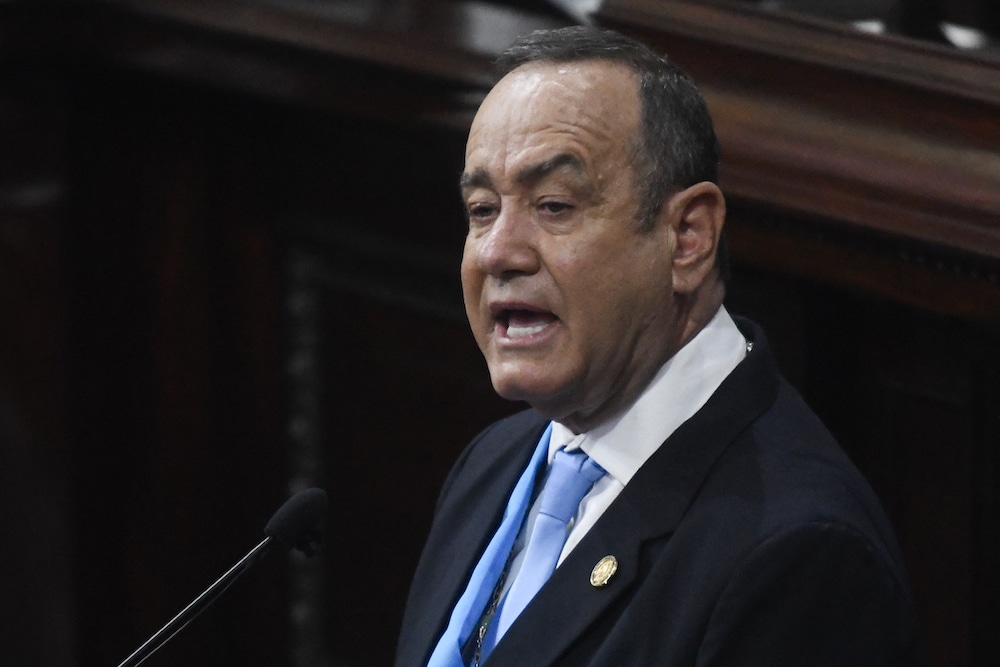Alejandro Giammattei, president of Guatemala. (AFP via Getty/ JOHAN ORDONEZ)
The congress of Guatemala has passed legislation to explicitly ban same-sex marriage, ban the mention of LGBT+ equality in school, and triple the prison sentence for abortion.
The “Life and Family Protection Law” was passed by congress on Tuesday, 8 March, which was also International Women’s Day. It was voted through with 101 votes in favour, 51 abstentions and just eight votes against.
It will officially come into law once it has been signed by Guatemala’s president, Alejandro Giammattei.
Currently, people who choose to have an abortion are criminalised in Guatemala, and can be punished with up to three years in prison, with to only exception being if it is carried out by a doctor to save the pregnant person’s life.
The “Life and Family Protection Law” would triple this sentence, bringing it to 10 years.
While there is already no provision for same-sex marriage in Guatemala, the law would amend the civil code to “expressly prohibit” it, according to AP News.
The law would also ban schools, both public and private, from any teaching or policies that promote LGBT+ equality. The law describes such teaching as “promoting in children and teenagers policies or programs that tend to lead to diversion from their sexual identities at birth”.
i urge any and all LGBTQ+ person or ally to inform yourselves about what is happening in guatemala.
abortion, voluntary or not has been criminalized. same sex marriage has been banned. sexual education has been banned.
we exist. we matter. please don’t leave us in the shadows
— marián ♒︎ (@lxghtoflove) March 9, 2022
Guatemala is legally bound by the rulings of the Inter-American Court of Human Rights, which in 2018 ruled that same-sex marriage is a human right. The court is currently considering a case on the complete abortion ban in El Salvador.
Walter Felix, a left-wing member of Guatemala’s congress, described the law as “absolutely discriminatory”, said it would “incite hate”, and added: “The human rights of significant parts of the population are being violated.”
After the law was approved by congress, Jordán Rodas, the Human Rights Ombudsman of Guatemala, said he would fight to take down the legislation in the country’s Constitutional Court.
He said: “We are going to file an action of unconstitutionality so that this [law] has no effect.”
